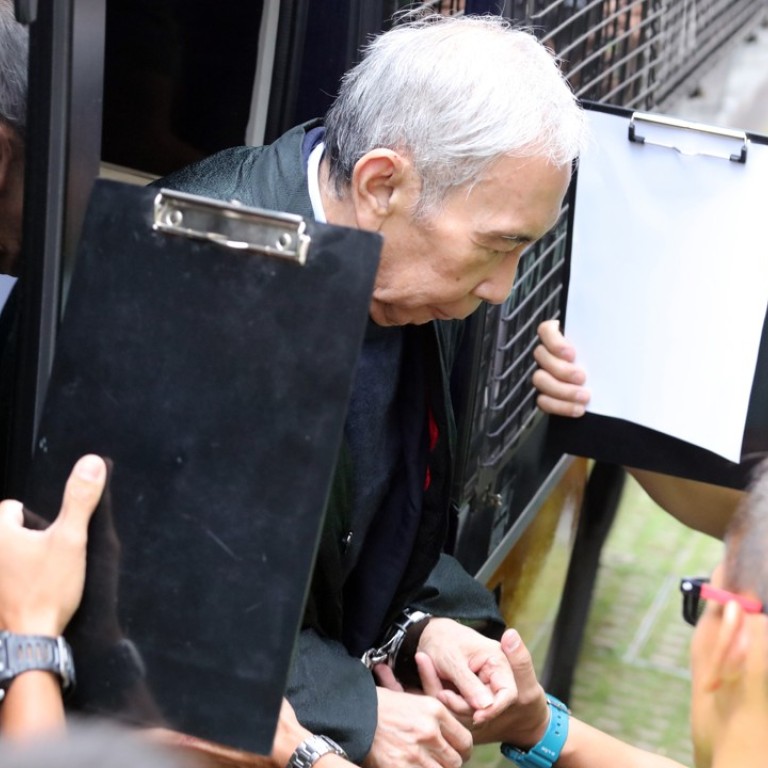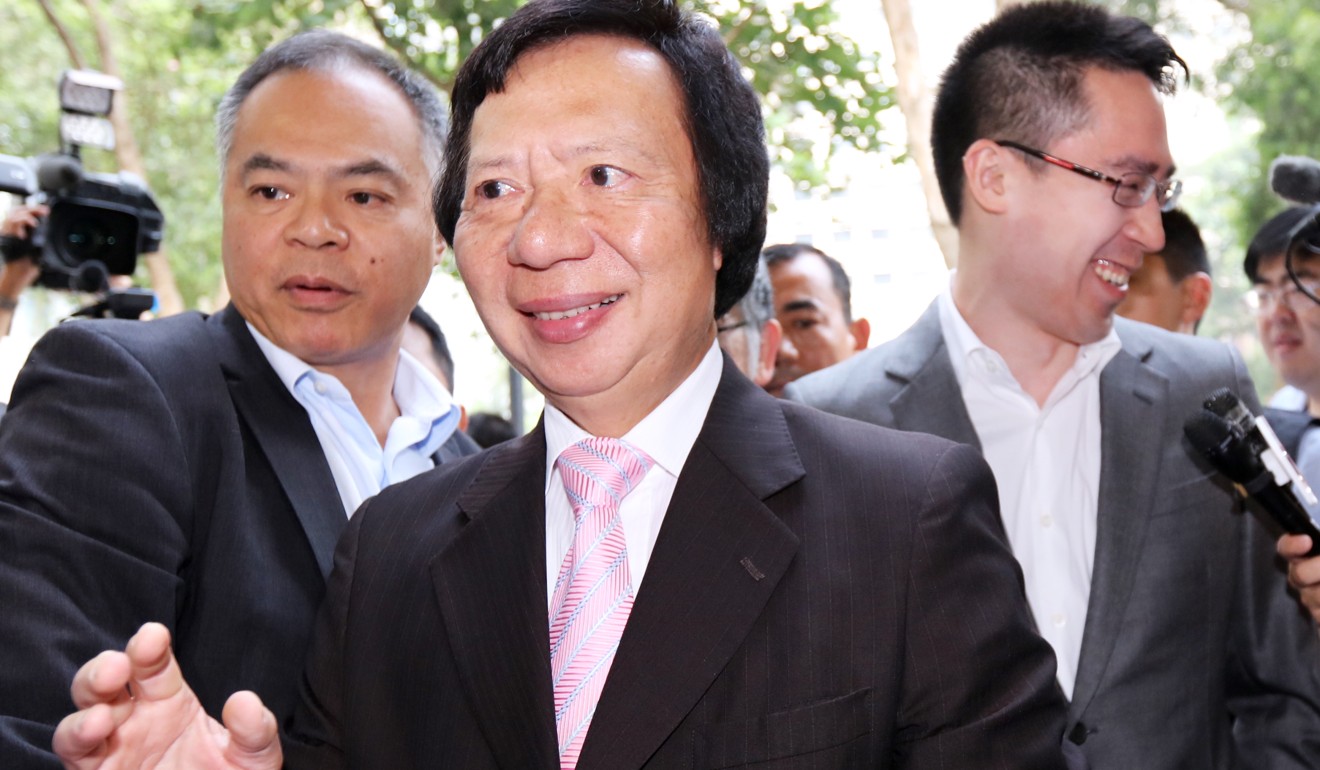
Rafael Hui prosecutors pursued case that was harder to prove to expose corruption
David Perry says conspiracy for which former chief secretary was jailed ‘bore all the hallmarks of being bribed’
Prosecutors chose to pursue a harder to prove case against a former top government official to expose how it bore “all the hallmarks” of corruption, Hong Kong’s top court heard on Wednesday.

The city’s former No 2 official is appealing against his conviction for conspiring to commit misconduct in public office. As he was convicted on four other counts, he will remain in prison regardless of the outcome.
Property tycoon Thomas Kwok Ping-kwong, who co-chaired SHKP, was jailed at the same time as Hui, having been found guilty of paying him HK$8.5 million via middlemen just days before Hui assumed office.
In the current appeal, Kwok’s lawyers questioned why prosecutors had accused Hui of taking the money and then being “favourably disposed” to Kwok and SHKP, without proving he had agreed to or engaged in corrupt acts.
But they accepted the prosecutors could have pinpointed another aspect of misconduct to accuse Hui of failure to disclose, which constituted an act – although it did not necessarily amount to corruption.
Perry told a panel of top judges: “I accept and acknowledge that it was possible for the prosecution to charge [with] failure to disclose.
“But the problem was that it failed to capture the true essence of the criminality of the case”, which bore “all the hallmarks of being bribed”.
“It was the use of a public office for private gain, a quite distinct and serious allegation,” Perry said.
Former SHKP executive Thomas Chan Kui-yuen and former stock exchange official Francis Kwan Hung-sang, who are serving six and five years respectively for handling HK$11.18 million as middlemen, are also appealing their convictions.
It was the use of a public office for private gain, a quite distinct and serious allegation
Kwok, who was jailed for five years but is out on bail pending the appeal, said when he entered the courtroom yesterday that he had grown less nervous.
“I am human. I am not perfect. I think God’s grace is sufficient for me, even though I am weak,” the tycoon said.
Hitting back at a suggestion by the defence that there was no evidence of any act by Hui in return for the money, Perry countered the act lay in Hui being continuously favourably disposed to the developer.
“By being or remaining favourably disposed, it’s a course of continuation. It’s a state of affairs that stamps the conduct of a public official during the course of office as culpable,” he said, adding that Hui had also exposed himself to blackmail.
Clare Montgomery QC, for Kwok, replied that to allow Hui’s conviction to stand without an act or agreement proved would be unprecedented in the history of common law.
She added that the judges’ decisions could have an impact on other jurisdictions if they rejected the appeal.
Chief Justice Geoffrey Ma Tao-li said he would reserve judgment for a later, unspecified date. He extended Kwok’s bail until the day of the ruling.

